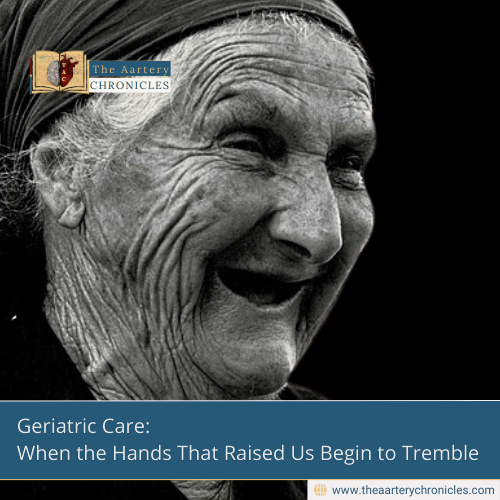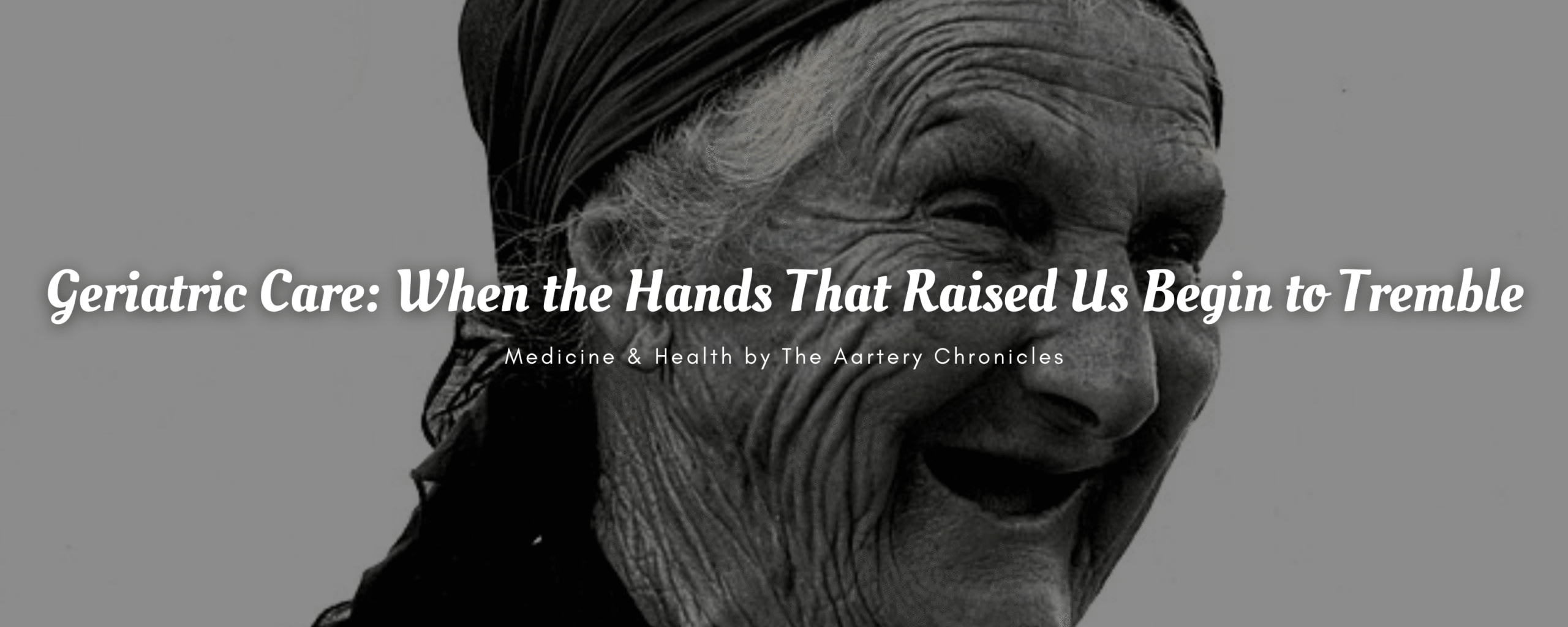

Geriatric Care: When the Hands That Raised Us Begin to Tremble
There comes a stage in life when time itself begins to betray the human body. The bones that once bore the weight of labour now bend under fragility. The eyes that once sparkled with dreams grow dim with cataracts. The voice that once commanded respect trembles in weakness, and the hands that once held us steady in our first steps now grope for support. This is old age—life’s final station, where dignity and despair wrestle endlessly, and where silence grows louder than speech.
The tragedy is not only in the inevitable decay of flesh and bone, but in the way society chooses to treat its elders: not as living repositories of wisdom, but as inconvenient relics.
"To care for those who once cared for us is the highest honour."
Tia Walker.
The Adversities of Old Age
For the elderly, suffering comes in layers—physical, emotional, and existential.
The body itself becomes a battlefield. Arthritis gnaws at the joints, each step a negotiation with pain. Memory frays, leaving once-brilliant minds lost in fog. Eating becomes a chore, sleeping a restless torment, and even breathing a laborious act. A once proud individual—who might have carried a child on his shoulders or tended to the needs of an entire household—now needs assistance with the simplest of human acts: bathing, dressing, using the toilet.
Yet physical decline is only half the tragedy. Loneliness is the true epidemic of old age. The children they raised with infinite care often grow into adults with little time to spare. Friends die, partners pass away, and the once-bustling house turns into a cavern of silence. The walls, once alive with conversation and laughter, now echo only with the ticking of the clock.
And then comes the humiliation of dependence. For the proud father, the former provider, there is no greater pain than being reduced to an obligation. For the mother, who once stitched together the family’s very fabric, there is no deeper sorrow than to feel invisible at her dining table. They are aware of whispered frustrations, of sighs behind closed doors, of questions that linger unsaid: “How much longer?”
The Forgotten Debt
We are quick to forget. We forget the mother who stayed awake through fevered nights, counting our breaths with worry in her eyes. We forget the father who denied himself comforts so that we might have them. We forget the hands that fed us, clothed us, and sheltered us.
When they falter, we dismiss their needs as burdens. When they cry, we call it weakness. When they reach for us, we are too busy reaching for the world.
It is a strange cruelty: the same society that celebrates youth and innovation turns its back on the very people who made that future possible. In doing so, we not only betray them—we betray our humanity.
The Life of Silence and Misery
For many elders, each day is not lived but endured. The routines of pain and waiting stretch endlessly: waiting for medicine, waiting for someone to visit, waiting for a kind word, waiting—above all—for release.
And in this endless waiting, they begin to ask a question few dare to voice: Is it worth prolonging life when it has lost all its meaning?
Here lies the most haunting truth of geriatric misery: suffering often does not kill, but it erases the will to live. The silence of nursing homes, the sterile smell of hospital wards, the impersonal care of overworked attendants—these are not the dignities of living, but the indignities of surviving.
Euthanasia: Escape or Mercy?
It is here that the difficult, uncomfortable subject of euthanasia arises—not as a clinical debate, but as a philosophical plea.
For an elder bound to a bed, with no hope of recovery, who stares daily at the ceiling, wondering why breath still lingers in their chest, euthanasia may not be an escape but an act of grace. To allow a human being to choose the terms of their exit—to say, “I have lived, I have given, and now I am ready to rest”—is perhaps the highest respect we can grant them.
Opponents argue that life is sacred, that suffering refines the soul. Yet there is nothing sacred about reducing a once-dignified human to a husk of dependency. There is nothing noble in watching a mind rot in dementia, or a body collapse into pain. If we truly value life, then we must also value dignity. And sometimes, dignity lies not in prolongation, but in release.
Countries like the Netherlands, Belgium, and Canada have begun opening the doors to such discussions, allowing euthanasia under strict conditions. In India, passive euthanasia has found limited legal acceptance since 2018. Yet the conversation remains hushed, often smothered under moral panic. We fear it not because it is wrong, but because it forces us to confront our mortality.
Why the Old Ones Still Matter
And yet, beyond pain and despair, we must remember this: the old ones still matter.
They matter not for what they can do now, but for what they have already done. Every wrinkle is a story, every tremor a testimony, every faded eye a reflection of a life once lived with vigour. To honour them is not charity; it is repayment of an incalculable debt. A debt of nights they stayed awake for us, of meals they sacrificed, of dreams they abandoned so that ours could flourish.
When we neglect them, we are not discarding individuals—we are erasing memory, erasing history, erasing love itself. They are the silent archives of our existence—the living memory of where we came from, of how love once looked when it was unconditional.
And yet, in our world of speed, screens, and selfish pursuits, we have created spaces where the elderly are stored away like forgotten relics, instead of being cherished as the fragile keepers of wisdom and love.
Closing Reflection
One day, inevitably, we too will walk their path. Our bodies will weaken, our voices tremble, our relevance fade. We will sit in their chairs, waiting for someone to look at us not as a burden but as a human being. Perhaps the saddest part of old age is not death itself, but the years of silence that precede it. A silence filled with invisible tears, unacknowledged sacrifices, and the hollow ache of being forgotten.
And so, the question remains: will we let them suffer in the shadows of neglect, or will we grant them the dignity of choice—even if it means letting them go?
Because the silence that surrounds them today may be the silence that greets us tomorrow.
- Editorial,Medicine and Diseases
- 23 August 2025
- 11:00








